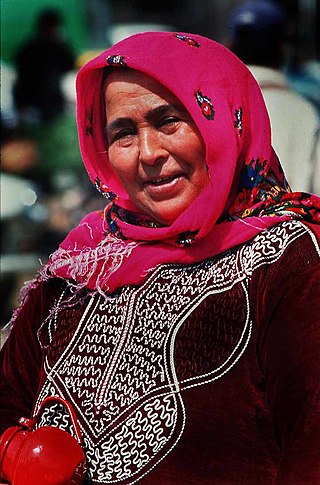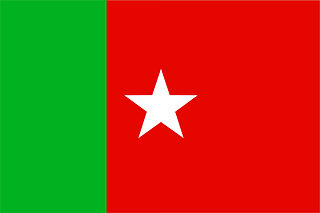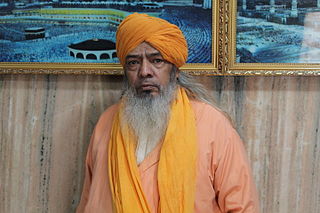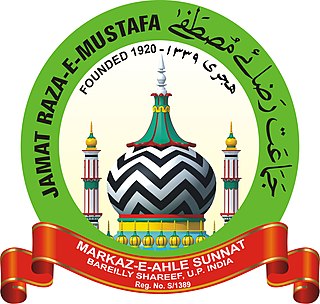
In modern usage, hijab generally refers to various head coverings conventionally worn by many Muslim women. It is similar to the tichel or snood worn by Orthodox Jewish women, certain headcoverings worn by some Christian women, such as the mantilla, apostolnik and wimple, and the dupatta worn by many Hindu and Sikh women. Whilst a hijab can come in many forms, it often specifically refers to a scarf wrapped around the head, covering the hair, neck and ears but leaving the face visible. The use of the hijab has been on the rise worldwide since the 1970s and is viewed by many Muslims as expressing modesty and faith; it has also been worn for purposes of adornment. When it comes to the obligation for a Muslim woman to cover her hair and body, many have expressed confusion about the origin of this commandment. However, there has never been any debate within Sunni Islamic scholarship at any point in history regarding the obligation of hijab for all Muslim women who have reached the age of puberty.
The Uniform Civil Code is a proposal in India to formulate and implement personal laws of citizens which apply on all citizens equally regardless of their religion. Currently, personal laws of various communities are governed by their religious scriptures. Implementation of a uniform civil code across the nation is pursued by India's governing Bharatiya Janata Party. Personal laws cover marriage, divorce, inheritance, adoption and maintenance. While articles 25-28 of the Indian Constitution guarantee religious freedom to Indian citizens and allow religious groups to maintain their own affairs, article 44 expects the Indian state to apply directive principles and common law for all Indian citizens while formulating national policies.

A dress code is a set of rules, often written, with regard to what clothing groups of people must wear. Dress codes are created out of social perceptions and norms, and vary based on purpose, circumstances, and occasions. Different societies and cultures are likely to have different dress codes, Western dress codes being a prominent example.

The tudong is a style of headscarf, worn as interpretation of the Islamic hijab, prevalent amongst many Muslim women in the Malay-speaking world; Indonesia, Brunei, Malaysia, and Singapore. Today, the tudong forms part of the standard dress code for many offices in Indonesia and Malaysia, as well as in school uniforms and formal occasions. Though initially considered a conservative form of dress, it is worn today by most moderate Muslim women in Malaysia and Indonesia.

Popular Front of India (PFI) is an Islamic political organisation in India, that engages in a radical and exclusivist style of Muslim minority politics. Formed to counter Hindutva groups, it was banned by the Indian Ministry of Home Affairs under Unlawful Activities (Prevention) Act (UAPA) on 28 September 2022 for a period of five years.

Hindu Munnani is a right-wing Hindu nationalist organisation based in the Indian state of Tamil Nadu. Hindu Munnani was set up by Rashtriya Swayamsevak Sangh (RSS) The organisation was founded in 1980 by Ramagopalan, a member of RSS and since its formation served as the platform for RSS and its subsidiaries known as the Sangh Parivar.
Sadanand Date is an officer of 1990 batch of Indian Police Service (IPS) and chief of NIA.

Various styles of head coverings, most notably the khimar, hijab, chador, niqab, paranja, yashmak, tudong, shayla, safseri, carşaf, haik, dupatta, boshiya and burqa, are worn by Muslim women around the world, where the practice varies from mandatory to optional or restricted in different majority Muslim and non-Muslim countries.

Social Democratic Party of India, popularly known as SDPI, is an radical Islamist, fundamentalist Indian political party founded on 21 June 2009 in New Delhi. It is the political wing of the Islamist organization Popular Front of India (PFI).
Love jihad is an Islamophobic conspiracy theory promoted by right-wing Hindutva activists. The conspiracy theory purports that Muslim men target Hindu women for conversion to Islam by means such as seduction, feigning love, deception, kidnapping, and marriage, as part of a broader demographic "war" by Muslims against India, and an organised international conspiracy, for domination through demographic growth and replacement.
The assault on T. J. Joseph occurred on 4 July 2010. T. J. Joseph, a professor of Malayalam at Newman College, Thodupuzha, a Christian minority institution affiliated with Mahatma Gandhi University had his wrist disarticulated on allegation of blasphemy, by members of Popular Front of India, an Islamic organisation in India. The then Minister of Home Affairs of Kerala, Kodiyeri Balakrishnan, made a statement that while government is aware that there is a local Dar-ul Khada set up by the Popular Front of India under the supervision of the All India Muslim Personal Law Board, functioning to resolve civil disputes, there were no complaints received that it was passing "Taliban-model" orders.

Social Justice Conference based on the theme "Build the Nation on Justice" was held at the Ramlila Maidan in New Delhi on 26 and 27 November 2011. It was organized by Popular Front of India which is a Neo-social movement which strives for the empowerment of the weaker sections and marginalized communities with grass root level networking in many states of India. The Conference became a get together of like minded organizations and movements which strive for the common goals of justice, security and empowerment. The first day of the conference had two separate seminar sessions on the topics ‘Together for Empowerment’ and ‘People’s Right to Justice’. The second day witnessed a large flow of masses for the Grand Public Meeting
Al Ummah is a radical extremist terrorist organisation mainly based in the Indian state of Tamil Nadu. It was banned by the Government of Tamil Nadu for perpetrating the 1998 Coimbatore bombings.

Syed Zainul Abedin is the Dewan and Sajjada Nasheen of the Ajmer Sharif Dargah, the Shrine of Khawaja Moinuddin Chishti. He is a Sufi of the Chishti order. He is the son of Dewan Syed Ilmuddin Ali Khan, former Sajjada Nasheen.

The Campus Front of India (CFI) is the student/campus wing of the banned Islamist organization, the Popular Front of India. CFI was launched at New Delhi on November seventh at the National Students Convention 2009. The founder and president was Muhammad Yusuff from Tamil Nadu. The Popular Front of India, Campus Front of India and seven other associated outfits were banned by the Government of India for unlawful activities in September, 2022.

The Hadiya case was a 2017–2018 Indian Supreme Court case that affirmed the validity of the marriage of Hadiya and Shafin Jehan, which was challenged by Hadiya's family. Media outlets have described the underlying dispute as an allegation of "love jihad".

Jamat Raza-e-Mustafa also known as JRM, is a historical organisation of Indian Sunni Barelvi Muslims associated with Sufism. It was founded by scholar and 19th-century Mujadid Ahmed Raza Khan Barelvi on 17 December 1920 in Bareilly, India, to propagate Islamic teachings in accordance with Ahle Sunnah wal Jama'ah. The self-described aim of the group is to "deny misguided sects and safeguard the beliefs (Aqaa'id) of the Ahle Sunnah wal Jama'ah."
Events in the year 2022 in India.
At the beginning of February 2022, a dispute pertaining to school uniforms was reported in the Indian state of Karnataka, when some Muslim students of a junior college who wanted to wear hijab to classes were denied entry on the grounds that it was a violation of the college's uniform policy which was also followed by the other religion students as well. Over the following weeks, the dispute spread to other schools and colleges across the state, with groups of Hindu students staging counter-protests by demanding to wear saffron scarves. On 5 February, the Karnataka government issued an order stating that uniforms must be worn compulsorily where policies exist and no exception can be made for the wearing of the hijab. Several educational institutions cited this order and denied entry to Muslim girls wearing the hijab.

Shujaat Ali Quadri is an Indian student activist and journalist. Qadri is serving as Chairman of Muslim Students' Organization of India since 2021, earlier he had served as National President of Muslim Students' Organization of India from 2017 to 2021. He is co-founder of Digital Forensics, Research and Analytics Center. He is a Deputy Director of Indo Islamic Heritage Center.












